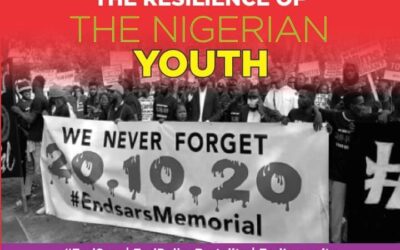This Bakassi issue can be traced beyond the Anglo-German treaty of 1913 to unsavory historical fact of the European scramble and partitioning of Africa in the 1880s. Cameroons claim to this territory of Nigeria hinges on this as well as the deal initiated in 1966, during the Nigerian Civil War, by General Yakubu Gowon. The then military head of state handed the oil rich territory of Bakassi to Cameroon in return for Cameroon to seal its borders with the then rebel Biafra thereby stifling the Biafran key supply route. This was expressed in the Yaounde II Declaration of April 1971 as well as the Maroua Declaration of June 1975.
In 1981 and 1990 the two countries came to the brink of war with military skirmishes over the disputed region. Under the dictatorship of General Sani Abacha, Nigeria carried out a significant show of military might in the region, resolute that Bakassi is and remains a full fledged territory of Nigeria. The agreements Cameroon base their claim on where considered not legally binding as they were never ratified. Many saw General Abacha’s position on Bakassi as a ploy to distract attention from his military dictatorship.
In 1994, Cameroon brought the matter before the International Court of Justice. Delivering its judgement on 10th October 2002, the ICJ ruled in favour of Cameroon. Nigeria was to hand over the disputed resources rich peninsula to Cameroon. This did not bring resolution to the matter as Nigeria refused to withdraw its troops from the territory.
POLITICS OF TERRITORY OVER PEOPLE: THE GREEN TREE AGREEMENT, GTA: In 2006, culminating a peace negotiation that had begun in 2002 and brokered by Kofi Anan then Secretary General of the United Nations, President Obasanjo and Paul Biya of Cameroon signed the Green Tree Agreement in. In the same year, Nigeria began the process of handing over the territory to Cameroon with the withdrawal of its troops. Part of the deal was the resettlement within the territory of Nigeria; Bakassi indigenous people who chose not to be part of Cameroon. In 2007, the Federal Government went ahead with the implementation of the terms of the Green Tree Agreement, Ignoring a senate resolution that declared the handover illegal arguing that it was contrary to Section 12(1) of the 1999 Constitution. The Presidency also ignored a Federal High Court injunction restraining the Federal Government from relocating the indigenous people of Bakassi without the ratification of the treaty by the National Assembly.
AN INJUSTICE AGAINST THE INDIGENOUS PEOPLE OF BAKASSI: The relocation of indigenous people of Bakassi to a so called New Bakassi has been incomplete with complaints by the mainly fishermen that they have been taken to landlocked territory which is already inhabited. This so called relocation of the indigenous people of Bakassi obviously will make them refugees in their own country thereby replicating a situation parallel to the Palestinians as well as the Kurds of Turkey. There has also been reports of serious complaints of harassment and discrimination meted out by the Cameroonian authorities against the indigenous Bakassi people who stayed back.
It is pertinent to note that one key thread of injustice that runs through the entire saga is that the opinion of the indigenous people of Bakassi has never been sought:
1. In the Anglo-German agreements and the prequel colonial partitioning of Africa as pertinent to the peninsular.
2. When General Gowon ceded the territory to Cameroon in the late 1960’s and the subsequent agreements of 1971 and 1975.
3. When the matter was brought before the ICJ, neither the court, Nigeria or Cameroon made a case for the indigenous people.
4. In the peace meetings and the subsequent Green Tree Agreement brokered by the Kofi Anan, then Secretary General of the United Nations.
5. When the Nigerian government under President Obasanjo handed over the territory to Cameroon.
ALL THE CRY BY THE PEOPLE OF BAKASSI HAS LARGELY BEEN IGNORED!!
THE EVIL VESTIGES OF COLONIALISM & IMPENDING BLOODSHED: On 6th August 2006 when under the leadership of Late Tony Ene Asuquo, Bakassi Movement for Self Determination (BAMSD) unilaterally declared independence. On the….. Bakassi Self Determination Front (BSDF) has declared a Bakassi Republic with a flag and coat of Arms. A grave injustice that is has its roots in the evil vestiges of the colonial demarcation of Africa as represented by the Berlin Conference of 1884 & 1885 may now be coming to a head with bloodshed in sight! This must not be allowed to happen. And of greater importance, the voice of the people of the indigenous people of Bakassi must be heard by Nigeria, Cameroon and the United Nations.
THE WAY FORWARD: Many commentators have made a strong case urging the Federal Government not just to appeal the ICJ ruling but also not to hand over the territory of Bakassi. While this is tantamount to Nigeria reneging on an international agreement and which can be enforced by the UN through sanctions or military force; there is a strong case inherent in the human rights angle of the matter. And that is that the indigenous people of Bakassi should have not just a say, but the say over their fate. And that say the paramount ruler of Bakassi Etiyin Etim Okon Edet clearly expresses:
“We still insist on having a United Nations supervised plebiscite where we will exercise our right to self-determination which is an inalienable right provided for in Article 1 of 1966 International Convention on Civil and Political Rights, General Assembly resolution 2200A”.
This plebiscite has a parallel in the UN supervised referendum which was granted to the people of the oil rich Abyei region of Sudan in 2011, to decide either to become part of the Kordofan region of North Sudan or the Bahr el Ghazal region of South Sudan. (Although this referendum has not held yet).
ITS ABOUT THE HUMAN RIGHTS OF THE INDIGENOUS PEOPLE OF BAKASSI: The International Bill of Human Rights is very pertinent in this Bakassi matter. Article 1 of International Covenant on Economic, Social, and Cultural Right 1976 as well as Articles 1 of International Covenant on Civil and Political Rights 1976 state:
1. All peoples have the right of self-determination. By virtue of that right they freely determine their political status and freely pursue their economic, social and cultural development.
2. All peoples may, for their own ends, freely dispose of their natural wealth and resources without prejudice to any obligations arising out of international economic co-operation, based upon the principle of mutual benefit, and international law. In no case may a people be deprived of its own means of subsistence.
3. The States Parties to the present Covenant, including those having responsibility for the administration of Non-Self-Governing and Trust Territories, shall promote the realization of the right of self-determination, and shall respect that right, in conformity with the provisions of the Charter of the United Nations.
Finally, Article 7 of African Charter on Human and People’s Rights 1981 states that
1. Every individual shall have the right to have his cause heard. This comprises: (a) the right to an appeal to competent national organs against acts of violating his fundamental rights as recognized and guaranteed by conventions, laws, regulations and customs in force;
The voice of the indigenous people of Bakassi must be heard. The wishes of the indigenous people of Bakassi must be considered. It is their inalienable right! This is the justice that the National Association of Seadogs must campaign for the benefit of the indigenous people of Bakassi.
{petition identifier="test-petition"}


